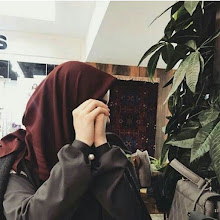ICE CANDY MAN novel by Bapsi Sidhwa
Similarities in Experiences of writer and narrator:
Use of the first-person narrator:
The first person narration technique used by the author in the novel makes readers feel as if they were reading an autobiography of the writer. There are quite a few evidence to consider Lenny as the portrayal of the writer herself. Lenny, being a child of a Parsee family, roams freely through the
Sikh,
Muslim, Hindu, and Parsee society of her environs in Lahore and observes everything and reports everything with a child’s natural innocence.
The writer uses an immature child as a narrator to add more authenticity to the reporting of the events. As the narrator is stricken by polio in infancy she is receiving private schooling at home like the author and remaining always present at almost all places to witness every incident. Like
Sidhwa, Lenny has to undergo a series of operations during her childhood.
In the novel
Dr. Col. is not in favor of her schooling which reminds readers of doctor’s advice given to the writer’s parents not to burden Bapsi Sidhwa with the school. Further, the writer seems to be claiming truth in her story by the reference of truth inflected tongue of the narrator. Once Lenny says,
“I am tempted to tell her the truth. My wretched truth inflected tongue just in time.”
The kidnapping of Ayah:
Like other incidents, the kidnapping of Ayah in the novel
“Ice Candyman” resembles the incident in Bapsi Sidwa’s own life. Recalling the nightmarish experience of those days, Sidhwa tells Feroza Jussawalla:
When I was a child living in Lahore at the time of partition, my maiden name was Bhandara, which sounded like a Hindu name. After most of the riots were over, a gang of looters came in carts into our house thinking it is an abandoned house. They were quite shocked to see us and my mother and everybody there. At that time our Muslim cook came and said, what do you damn people think you are doing? “
This is a Parsee household”, and they said, “
We thought it was a Hindu household” and they went away. I decided to write a story about partition because this scene was vivid in my mind.
Refugees Camps:
Further, the description of the refugee camp Courtyard of Recovered Women near Lenny’s house is a fine blend of fact and fiction. Lenny’s beloved Ayah is restored to this camp and many other people familiar to Lenny and her family also joined the camp after becoming victims of the chaos of the partition.“There was a rehabilitation camp with many of these women adjacent to Sidhwa's house, and she states that she was inexplicably fascinated with these "
fallen women," as they were described to her at the time.” The author has fictionalized her childhood observations of the refugee camps to manifest the cost that women had to pay for partition.
Burning Lahore incident by writer:
Sidhwa gives descriptions of burning Lahore in the novel that she witnessed during her childhood. “The flame covers two or three brick buildings in the bazaar and it’s hard to put out the fire. People are pouring into the lanes from their houses and shops. After a while, a fire brigade wan arrives. Instead of water, they pour fuel on the entire rows of the buildings on both sides of the street which ignites in an incredible large destructive fire. People are running here and there and sometimes they disappear in the smoke. Her home city of Lahore became a border city in Pakistan and was crowded by thousands of refugees.
The writer writes about her childhood, the ominous roar of distant mobs was a constant of my awareness, alerting me, even at age seven, to an intense sense of the evil that was taking place in various parts of Lahore.
Gunny-sack incident:
The incident of the gunny-sack also a true case which was witnessed in real by the author mat Ali is walking on the Warriors road, on the way they find a bulging gunny-sack in which was found the Masseur dead. People’s attitude towards the dead body has been described in the following heart touching words.
“People gather around them, some concerned, some curious. But they look at
Masseur as if he is not a person. He isn’t. He has been reduced to a body. A thing. One side of his handsome face already buried in the dusty sidewalk.
Gandhijee character description by Bapsi sidhwa:
In the novel, Sidhwa presents her own opinions and beliefs about the personalities and characters of Gandhi, Nehru, and Jinnah though the brief portrayal of their character in the novel narrated by Lenny. In the novel, the author gives the description of the event when Gandhijee comes to Lahore wherein the author has focused more on
Gandhijee's advice related to dieting and enema. Here it seems the author has portrayed the character of Gandhijee focusing on very few traits of his personality. Gandhiji has been depicted having feminine characteristics and the description sometimes appears to be laughing at the personality and character of Gandhijee. When
Gandhijee visits
Lahore, Lenny and her mother meet
Gandhijee. He is knitting surrounded by women and he advises Lenny to practice enema. The narrator has been shown by the author wondering in the following words, "I am puzzled why he's so famous.
Bapsi sidhwa’s beliefs about partition:
The writer clearly mentions that during division Muslims and Pakistan have suffered. The British government has done injustice to Jinnah and favored Nehru. Here the writer puts forth her own belief about the division. The writer has compared
Nehru with Jinnah. In comparison, she criticizes Nehru and favors Jinnah. The writer shows
Nehru as Lady Mountbatten’s lover. The writer wants to convey that in the allotment of areas at the time of partition
British and Nehru took the benefit of Jinnah’s good character and personality and did injustice to him.






